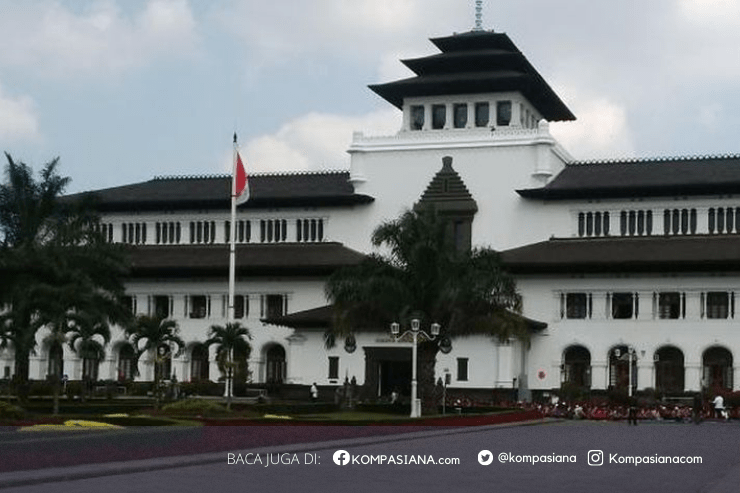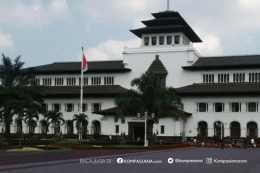Corruption Investigation in Bandung's Smart City Project
The recent corruption investigation into the Bandung municipal government's Smart City project by the Corruption Eradication Commission has shed light on the challenges and complexities surrounding the implementation of smart city initiatives in Indonesia. The Bandung Smart City project, launched in 2017, aimed to improve the efficiency and effectiveness of the city's public services through the integration of information and communication technology (Sunindyo et al., 2013) (Sutriadi, 2018).
However, the Corruption Eradication Commission's probe revealed that the project had been plagued by mismanagement, lack of coordination, and potential misuse of funds (Sunindyo et al., 2013). This investigation highlights the need for greater transparency, accountability, and stakeholder involvement in the development and implementation of smart city projects in Indonesia.
The Bandung case is not an isolated incident, as the issue of corruption has been a persistent challenge in Indonesia's public sector (Sabani et al., 2019). The high number of corruption cases involving regional heads, including at the provincial and district/city levels, indicates the systemic nature of the problem (Risky et al., 2020). In this context, the application of information and communication technology in governance, often referred to as "e-governance," has been seen as a potential tool to combat corruption (Sabani et al., 2019).
However, the implementation of e-governance initiatives in Indonesia has not been without its own challenges. Previous studies have highlighted the issues of coordination, integration, and the need for a comprehensive approach to the implementation of ICT-enabled governance (Sunindyo et al., 2013) (Sutriadi, 2018).
As Indonesia continues to pursue the development of smart cities, it is crucial that policymakers and local governments address these challenges head-on. This will require a multi-pronged approach, including strengthening transparency and accountability measures, improving coordination and integration between government agencies, and fostering greater stakeholder engagement (Sabani et al., 2019) (Sutriadi, 2018).
The Bandung Smart City project can serve as a case study for other Indonesian cities aiming to implement smart city initiatives. By learning from the Bandung experience and addressing the systemic issues of corruption and governance, Indonesia can harness the potential of smart city technologies to improve the quality of life for its citizens and promote sustainable urban development.
Corruption and the lack of transparency in the implementation of smart city projects can undermine the potential benefits of these initiatives. The Bandung case highlights the need for a more holistic and coordinated approach to the development of smart cities in Indonesia, one that prioritizes good governance, accountability, and the inclusion of diverse stakeholders.
Conclusion
The corruption investigation into the Bandung Smart City project has brought to light the challenges and complexities surrounding the implementation of smart city initiatives in Indonesia. As the country continues to pursue the development of smart cities, it is crucial that policymakers and local governments address the systemic issues of corruption and governance to ensure the success and sustainability of these initiatives.
To achieve this, the government should implement robust anti-corruption measures, such as strengthening auditing and monitoring mechanisms, introducing whistleblower protection laws, and enhancing public participation in the decision-making process (Sulistya et al., 2019). Additionally, the integration and coordination of e-governance initiatives across different government agencies should be a priority, as this will help to improve the efficiency and effectiveness of public service delivery (Sunindyo et al., 2013) (Sutriadi, 2018).
Finally, the involvement of diverse stakeholders, including citizens, civil society organizations, and the private sector, is essential in the development and implementation of smart city projects. By fostering a collaborative and transparent approach, Indonesia can harness the potential of smart city technologies to improve the quality of life for its citizens and promote sustainable urban development.
The Bandung Smart City project has revealed the need for a comprehensive approach to the implementation of smart city initiatives in Indonesia. By addressing the systemic issues of corruption and governance, and by embracing a collaborative and inclusive approach, Indonesia can pave the way for the successful and sustainable development of smart cities that truly benefit the people.
The implementation of smart city initiatives in Indonesia faces significant challenges, particularly in the area of corruption and governance. The Bandung Smart City project, which has been the subject of a corruption investigation by the Corruption Eradication Commission, serves as a cautionary tale for other cities aiming to implement similar projects (Sunindyo et al., 2013) (Sutriadi, 2018).
Corruption in Indonesia is a widespread and systemic issue, with a high number of regional heads involved in corruption cases (Risky et al., 2020).
References
Risky, F. R., Irianto, G., & Subekti, I. (2020). Cashless Transaction Policy: The Strategy of Fraud Prevention in Jakarta Province, Indonesia. https://doi.org/10.2991/aebmr.k.200606.023
Sabani, A., Farah, M. H., & Dewi, D. R. S. (2019). Indonesia in the Spotlight: Combating Corruption through ICT enabled Governance. In A. Sabani, M. H. Farah, & D. R. S. Dewi, Procedia Computer Science (Vol. 161, p. 324). Elsevier BV. https://doi.org/10.1016/j.procs.2019.11.130
Sulistya, A. Q. W., Sulistiyo, B. B., Aditya, F., Aritonang, I. D., Simangunsong, S. A., Shihab, M. R., & Ranti, B. (2019). A Case Study of Indonesian Government Digital Transformation: Improving Public Service Quality through E-government Implementation. In A. Q. W. Sulistya, B. B. Sulistiyo, F. Aditya, I. D. Aritonang, S. A. Simangunsong, M. R. Shihab, & B. Ranti, 2019 5th International Conference on Science and Technology (ICST). https://doi.org/10.1109/icst47872.2019.9166234
Sunindyo, W. D., Akbar, S., & Iqbal, M. (2013). Towards a smart world class city: Case: Building bandung ICT master plan (p. 1). https://doi.org/10.1109/ictss.2013.6588102
Sutriadi, R. (2018). Defining smart city, smart region, smart village, and technopolis as an innovative concept in indonesia's urban and regional development themes to reach sustainability. In R. Sutriadi, IOP Conference Series Earth and Environmental Science (Vol. 202, p. 12047). IOP Publishing. https://doi.org/10.1088/1755-1315/202/1/012047
Baca konten-konten menarik Kompasiana langsung dari smartphone kamu. Follow channel WhatsApp Kompasiana sekarang di sini: https://whatsapp.com/channel/0029VaYjYaL4Spk7WflFYJ2H







